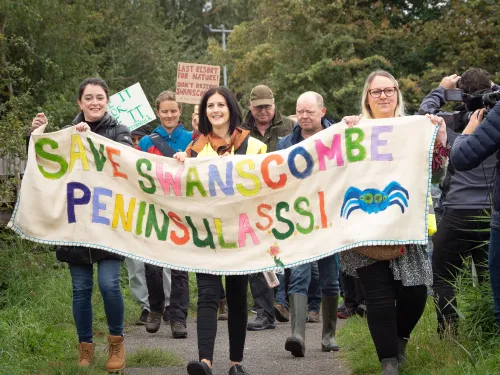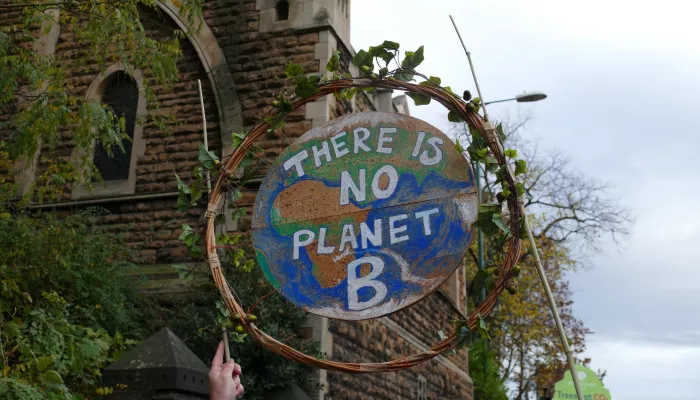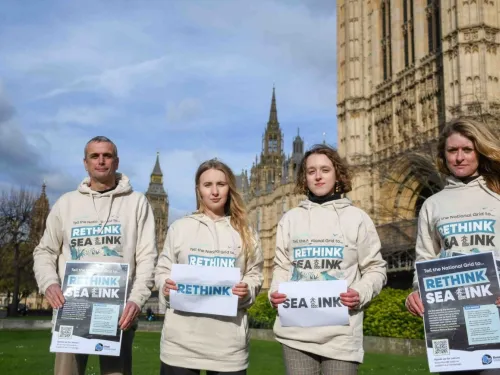
Conservation organisations celebrate the end to the London Resort project
Kent Wildlife Trust is delighted to confirm that the London Resort project, a proposed £2.5 billion theme park on the Swanscombe Peninsula, has officially been terminated.


Kent Wildlife Trust is delighted to confirm that the London Resort project, a proposed £2.5 billion theme park on the Swanscombe Peninsula, has officially been terminated.

Ofgem U-turn for Isle of Grain power project leaves conservationists asking National Grid to “Rethink Sea Link” and dump environmentally damaging plans for Pegwell Bay.

The moment over a thousand pounds worth of damage was done by heartless thieves who targeted a charity in Sevenoaks has been caught on camera.